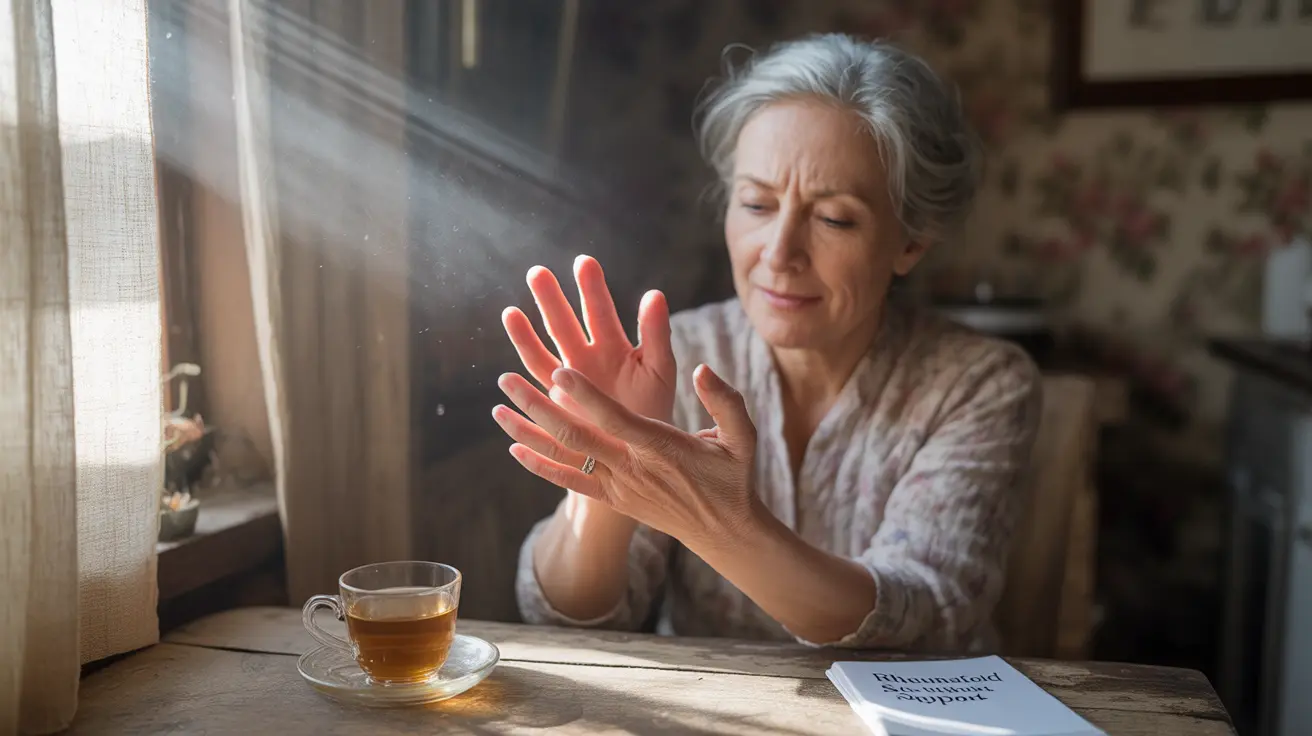Rheumatoid arthritis (RA) affects women differently and more frequently than men, with unique symptoms and challenges that deserve special attention. Understanding these gender-specific differences is crucial for early detection and effective management of this chronic autoimmune condition.
This comprehensive guide explores the distinct ways RA manifests in women, from early warning signs to long-term implications, helping you recognize when to seek medical attention and what to expect.
Common Early Symptoms in Women
Women often experience RA symptoms that can be distinctly different from men. The most common early signs include:
- Small joint involvement in hands and feet
- Symmetrical joint pain (affecting both sides)
- Morning stiffness lasting over an hour
- Fatigue and general malaise
- Low-grade fever
- Decreased appetite
These symptoms typically develop gradually over weeks or months, making early detection challenging but crucial for optimal treatment outcomes.
Gender Differences in RA Presentation
Research shows that women not only experience RA more frequently but often face different challenges compared to men:
- More severe symptoms and pain levels
- Earlier onset of the disease
- Greater likelihood of joint deformities
- Higher rates of disability
- Increased inflammation markers
Impact on Daily Activities
Women with RA commonly report significant effects on their daily activities, including:
- Difficulty with fine motor tasks
- Challenges in household activities
- Reduced grip strength
- Impact on personal care routines
- Sleep disruptions
The Morning Stiffness Challenge
Morning stiffness is a hallmark symptom of RA in women, often more pronounced than in men. This occurs due to:
- Increased inflammation during periods of inactivity
- Hormonal fluctuations affecting joint flexibility
- Changes in circadian rhythm affecting immune response
- Reduced cortisol levels during early morning hours
Hormonal Influences on RA Symptoms
Women's hormonal changes throughout life can significantly impact RA symptoms and disease progression:
Pregnancy Effects
Many women experience changes in their RA symptoms during pregnancy:
- Possible symptom improvement during pregnancy
- Potential flares postpartum
- Need for medication adjustments
- Impact on family planning decisions
Menopause Impact
The transition through menopause can affect RA symptoms:
- Increased joint pain and stiffness
- Greater inflammation levels
- Changes in medication effectiveness
- Need for treatment adjustment
When to Seek Medical Care
Women should consult a healthcare provider if they experience:
- Joint pain lasting more than six weeks
- Symmetrical joint swelling
- Persistent morning stiffness
- Unexplained fatigue
- Difficulty performing daily tasks
Frequently Asked Questions
What are the most common early symptoms of rheumatoid arthritis in women?
The most common early symptoms include symmetrical joint pain, particularly in small joints of hands and feet, morning stiffness lasting over an hour, fatigue, and mild fever. Women often notice these symptoms first in their fingers and wrists.
How does rheumatoid arthritis affect women differently than men in terms of symptoms and severity?
Women typically experience more severe symptoms, earlier disease onset, and higher rates of disability compared to men. They're also more likely to develop joint deformities and experience greater impacts on daily activities.
Why do women with rheumatoid arthritis often experience more joint stiffness and pain in the morning?
Morning stiffness is more pronounced in women due to increased inflammation during nighttime inactivity, hormonal fluctuations, and changes in circadian rhythm affecting immune response. This stiffness typically lasts longer than an hour and improves with movement.
Can hormonal changes like pregnancy or menopause influence rheumatoid arthritis symptoms in women?
Yes, hormonal changes significantly impact RA symptoms. Many women experience symptom improvement during pregnancy but may face postpartum flares. Menopause often leads to increased joint pain and inflammation, requiring treatment adjustments.
When should women seek medical advice if they notice joint pain, swelling, or stiffness?
Women should consult a healthcare provider if they experience joint pain lasting more than six weeks, symmetrical joint swelling, persistent morning stiffness, unexplained fatigue, or difficulty performing daily tasks. Early diagnosis and treatment are crucial for better outcomes.




